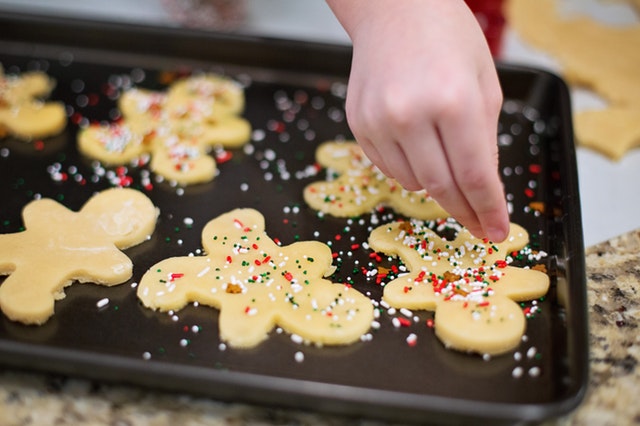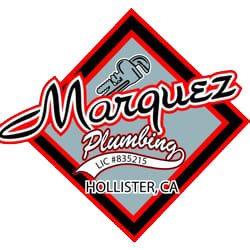Holiday Tips For Preventing Winter Plumbing Problems
By the time December rolls around, your plumbing is probably the last thing on your mind.
Between the shopping, wrapping, baking, and hosting, there’s plenty of activities to keep us busy during the festive holiday season.
But over the course of the winter months, it’s common to run into plumbing problems that aren’t typical throughout the rest of the year.
And the last thing you want to deal with during Christmas dinner is backed up drains, or a failing water heater.
But there’s good news – by taking a few proactive steps towards preventing winter plumbing problems, you can head off these issues before they even begin.
Here’s how:
Problem – Water Heater Damage
Your water heater will have to work harder to maintain optimal temperatures in the winter months.
Any time an appliance has to work harder, you consequently risk running into issues and breakdowns.
But you can take a few different measures to ensure your water heater functions properly, operates safely, and has a long life.
Solution 1: Check The Pressure Relief Valve
According to Happy Hiller, “Both gas and electric water heaters include a pressure relief valve as a safety device.
The point of the valve is to open and release pressure in case the water heater becomes over pressurized.
You can check this yourself by lifting the valve halfway. When released, the valve should automatically snap back into place.
If this does not happen, you should contact a professional to make sure your pressure relief valve is working properly.“
By checking your valve, you can rest easy knowing that your water heater will be operating safely.
And if you aren’t sure if your pressure valve is working properly, do not hesitate to ask a certified plumbing expert for help.
Solution 2: Make Sure Your Heater Is Set To The Right Temperature
“Although some manufacturers set water heater thermostats at 140ºF, most households usually only require them to be set at 120ºF, which also slows mineral buildup and corrosion in your water heater and pipes.
Water heated at 140ºF also poses a safety hazard—scalding.”
Setting your water heater to an appropriate temperature not only prevents your little holiday visitors from burns, but it can actually help increase the life of your water heater.
Taking the time to adjust your temperature settings will also save on your energy costs in the long run.
Solution 3: Flush Your Tank
Flushing your hot water heater tank should be a part of your regular yearly home maintenance.
But if you haven’t gotten to it this year, now’s the perfect opportunity.
Here’s how:
- Shut off the gas or electricity, depending on your water heater model.
- Turn off the cold water supply. This should be a valve near the top of your water heater.
- Start running hot water into a sink or tub. You’ll need to keep this water flowing throughout the whole water tank draining process.
- Connect a garden hose to your drainage spigot and make sure it leads outdoors, or to a large bucket.
- Turn on the spigot and drain until the water runs clear.
- Once your water is running clear, or your tank is drained completely, turn your cold water supply back on and let the water run through your hose for a few minutes or until clear. Turn the cold water spigot off and disconnect your hose once the quality of your water is improved.
- Turn off your drainage spigot, turn the cold water spigot back on, and then turn your water heater back on!
Flushing out your hot water heater tank yearly is another way to increase the units longevity and ensure it runs well all winter long.

Problem – Clogged Drains
Most households spend a lot more time baking and cooking in the fall and winter months, which means garbage disposals and drains are working extra hard to keep up with the food and grease created.
Bathroom drains also get a lot more traffic with guests showers, toilet use, warm baths, and plenty of hand washing.
This high use season can cause and aggravate existing clogs, causing nasty back ups that inconvenience your family’s festive plans.
Solution – Watch What You Rinse And Flush
There are plenty of ways that you can minimize your risk of having clogged drains during the holidays.
American Home Shield recommends,
- Keep food, coffee grounds and grease out of kitchen drains.
- Put leftover food in the trash or compost heap, not the garbage disposal.
- Pour liquid grease into a sealable container. After it cools, put it in the trash or take it to a recycling center.
- Keep hair and soap scum out of bathroom drains. Cover your tub and shower drains with a mesh screen or a perforated shower drain hair catcher. Either one will collect the hair and let the water run through.A shower drain hair catcher may be made of stainless steel, silicone or a combination of both. Another way to keep hair from clogging the shower drain is to replace the shower or tub stopper with one that has a built-in screen.Brush your hair before you shower or take a bath.This process removes loose hair and keeps it from clogging the shower drain. If you must bathe your dog in the tub or shower, place a washcloth over the drain. The amount of hair a dog sheds during a bath can even clog your regular shower drain hair catcher.
- Watch what you flush. Toilets are designed to handle human waste and toilet paper. Flushing dense, stringy or bulky materials can cause a clog.
- Dental floss, feminine hygiene products and other household waste should go in the trash instead.
December is undoubtedly a busy season, but if you take a few preventative measures now, you can avoid these common holiday plumbing mishaps and enjoy the festivities without a care.
Free Plumbing Estimate
We provide free estimates for all our customers.
